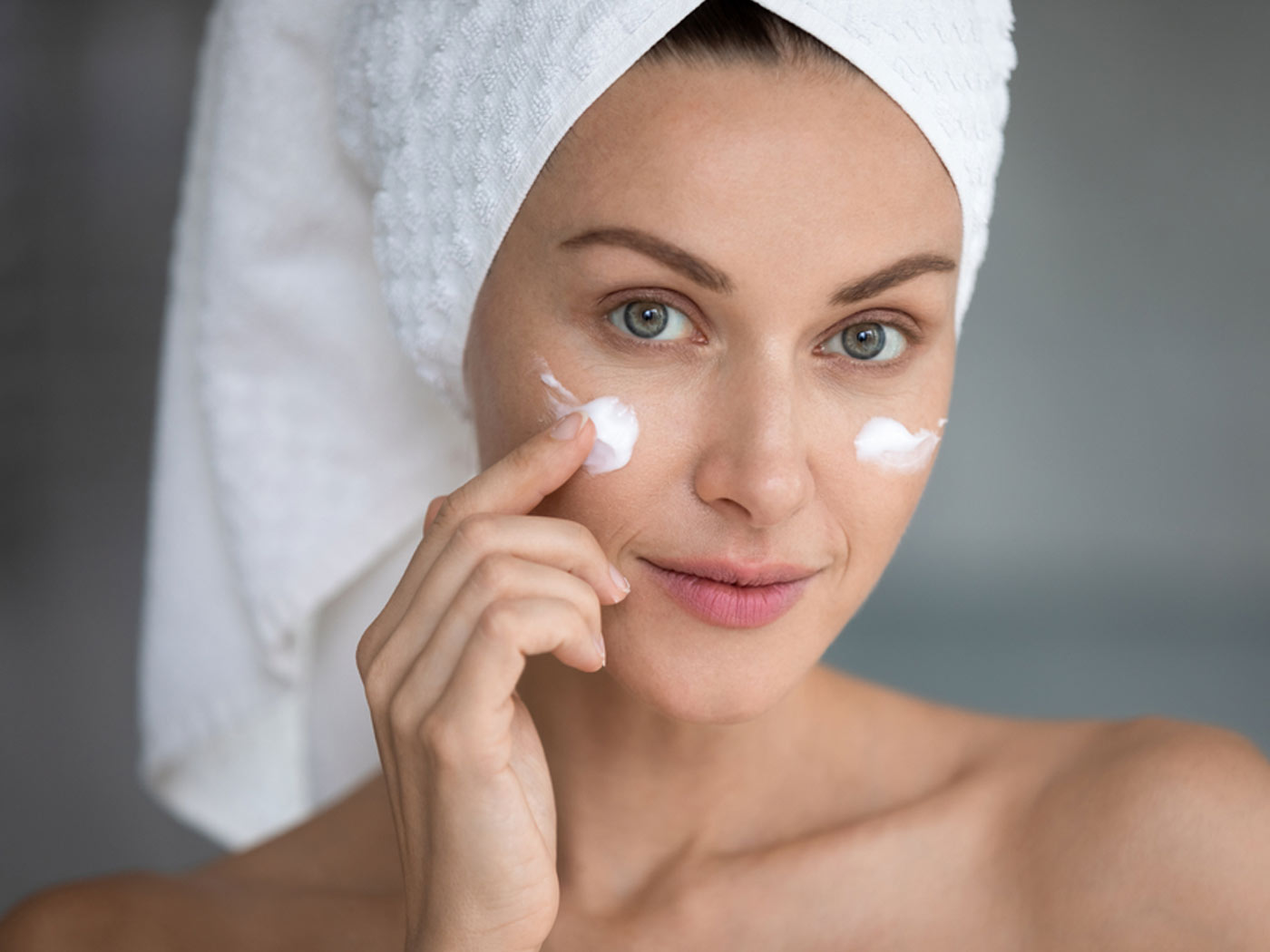
Having a skincare routine in place for someone who is starting new can look like a task. But once you understand how important taking good care of your skin is, you will put in the effort that is required for the same. However, sometimes, with the plethora of skincare routine steps that keep trending on the Internet, it can get a tad bit difficult to understand which product goes after which one. While many of your skincare products can be used alternatively or skipped depending on your skin concerns, two products stay constant - a moisturiser and sunscreen. Now, both of these products play a vital role in your skincare routine, regardless of your skin type, skin concerns and the seasonal changes. So, it only makes sense to be thorough with the knowledge on what to apply first, sunscreen or moisturiser?
-
Do You Put Sunscreen On Before or After Moisturiser?
-
Should You Mix Sunscreen With Moisturiser?
-
Is it Necessary to Apply Moisturiser Before Sunscreen?
-
How Long Should You Wait to Apply Sunscreen After Moisturiser?
-
Pure Sense Products with SPF and Moisturising Ingredients
-
Conclusion
-
Frequently Asked Questions (FAQs)
Do You Put Sunscreen On Before or After Moisturiser?
The rule of thumb says that you should always apply sunscreen as the final step of your skincare routine. So, no matter how short or lengthy your skincare routine is, sunscreen will always be the last product to go on your skin. If you're someone who doesn't have a skincare routine in place and only believes in these two products - moisturiser and sunscreen - then your sunscreen will follow after your moisturiser.
Should You Mix Sunscreen With Moisturiser?
Now that you're clear on whether to apply moisturiser or sunscreen first, let us discuss if there is a possibility of mixing the two products and combining them into one skincare step.
The answer is - no, you shouldn't. While we understand that it can get tedious to have quite a few skincare routine steps, you need to understand that both these products have different formulas. When you end up mixing both the products, you might waste your time at skincare altogether because both won't work. If at all you prefer to multi-task, you can invest in a moisturiser that contains SPF. These kinds of moisturisers are specifically formulated to lock in the moisture in your skin as well as protect it from the sun's harmful UV rays.
Is it Necessary to Apply Moisturiser Before Sunscreen?

If you ask, moisturiser or sunscreen first? The answer is, a moisturiser. You should be using all the products that can take good care of your skin, including a moisturiser. If you are interested in investing in a product that can do both, i.e. hydrate your skin and protect it from the sun, you won't need an extra product. But if you are going to apply sunscreen as your last step, then you must include moisturiser before.
Generally, the ingredients in a chemical blocker need to be absorbed into your skin so that they can do their job. In this case, you wouldn't want to apply anything that might interfere with their penetration, like a thick moisturiser that will create a barrier between your skin and the SPF that is meant to protect it. However, when the moisturiser is applied after sunscreen, it has the ability to change the properties of your sunscreen. In fact, it can also alter the way that UV rays meet your skin. So, if you were to apply a moisturiser before sunscreen, the former can dilute the sunscreen and alter its efficacy.
You should know that the kind of sunscreen you use also plays an important role in this debate of what to apply first, sunscreen or moisturiser? Chemical sunscreens (with a broad spectrum of SPF 70) work by soaking into your skin. Physical sunscreens or mineral sunscreens (with SPF 50 and less), on the other hand, is the kind that can leave you looking chalky unless you rub them in thoroughly. These sunscreens protect your skin by creating a physical barrier between your skin and the sun.
How Long Should You Wait to Apply Sunscreen After Moisturiser?

There is no specific time needed to wait before you apply sunscreen after a moisturiser. However, it won't harm you if you give your moisturiser a minute to absorb nicely into your skin before you go in with a thick layer of sunscreen. Once you wait for a minute or so, you can gently apply the mineral sunscreen as the last step of your skincare routine. Application may vary depending on the type of sunscreen you use. And there are two main types of sunscreen - chemical and physical.
Chemical Sunscreen:
These include ingredients like octisalate, azobenzene, oxybenzone, etc. Chemical sunscreens tend to soak up the UV rays from the sun and convert them into heat energy that can be abandoned from your skin. These sunscreens have a formulation that can get absorbed into your skin quite quickly and are usually water-resistant. Hence, if you're going for a swim or other such activities that could make you sweat a lot, a chemical sunscreen would work better.
Physical Sunscreen:
These ones are a good choice to make if you have sensitive skin. A physical sunscreen will sit on your skin's surface and hence are less irritating.
If you're going to use a moisturiser before a sunscreen, let us tell you that there are three different types that you can choose from - humectant-based, emollient-based and occlusive-based.
Humectant-Based Moistursers:
These moisturisers have a lightweight consistency, get absorbed by your skin quickly, and draw water to skin cells in order to keep your skin hydrated. You can look for hyaluronic acid, glycerin, honey or aloe vera in such moisturisers.
Emollient-Based Moisturisers:
These are light creams or light lotion formulas that work greatly for normal, dry and combination skin types. The lipids and oils in these moisturisers fill in all the cracks on your skin and help smooth out the surface of your skin, helping repair skin's barrier as well. You can look for moisturisers that have ceramides, rosehip, lanolin, shea butter, squalene, etc.
Occlusive-Based Moisturisers:
These moisturisers work well for mature, dehydrated and dry skin types. These are thicker in consistency, block the evaporation of water and hence, work perfectly for extremely dry skin. Look for olive oil, shea butter, beeswax, lanolin as ingredients when you'd want to choose occlusive-based moisturisers.
While we're talking about moisturisers and sunscreens, let us tell you that it is equally important to protect your lips from the sun and hence, you must look for a lip balm that will keep your lips moisturised while protecting it from sun exposure. Pure Sense is a premium skincare and hair care brand that designs products with organic ingredients, which means all of our products are free of chemicals like sulphates, parabens, carcinogens, formaldehyde and mineral oil. All of our products are also cruelty-free and come in earth-friendly packaging. Here are a couple of products that you should try:
Pure Sense Products with SPF and Moisturising Ingredients:
-
Grapefruit UV Protection Lip Balm:
This grapefruit lip balm is a zesty treat for your lips and provides you with intensely moisturised lips. It is a refreshing blend of exotic goodness that offers natural sun protection and also heals chapped lips. It is a unique blend of grapefruit extracts and exotic oils that is loaded with essential vitamins for moisturised lips. You can apply this lip balm as often as you desire for supple, soft lips.

-
Macadamia Nourishing Lip Balm:
This macadamia lip balm contains beeswax that has the ability to soothe and moisturise your lips and prevent chapping. It also contains castor oil that can remove discolouration and give your lips a fresh look while almond oil keeps the skin on your lips healthy.

Conclusion:
Now that you're clear with the whole sunscreen before or after moisturiser debate, you'll be a lot more comfortable with your skincare routine. As there are many different types of moisturisers and sunscreens available in the beauty market, it totally depends on you as to which application process you'd like to follow.
Frequently Asked Questions (FAQs):
-
Should I use sunscreen if my moisturiser has SPF?
Experts do recommend using both a moisturiser and sunscreen separately. Both of these products have different responsibilities and ingredients that will benefit your skin differently. But, if you choose to use a moisturiser with SPF, it is still better than not applying SPF at all. So you don't need an extra product after a moisturiser with SPF. However, if this product contains less than 30 SPF, it's better to use two different products - a moisturiser and sunscreen with SPF 30 or above.
-
Can I skip moisturiser and use sunscreen instead for oily skin?
Yes, you can skip the moisturiser and just use the sunscreen as it has a moisturising base and is fine to use without a moisturiser under them, especially on oily skin. But make sure you pick a sunscreen with moisturising ingredients if at all you are looking to skip moisturising your skin before using SPF.
-
Can you skip moisturiser if you use sunscreen?
If you're planning to use a chemical sunscreen, apply it before your moisturiser. This is because the chemical sunscreen will need to penetrate into your skin in order to provide protection. But, if you're using a physical sunscreen (also known as a mineral sunscreen), then it needs to be applied after the moisturiser. In both cases, no, you shouldn't skip your moisturiser just because you're using sunscreen.






